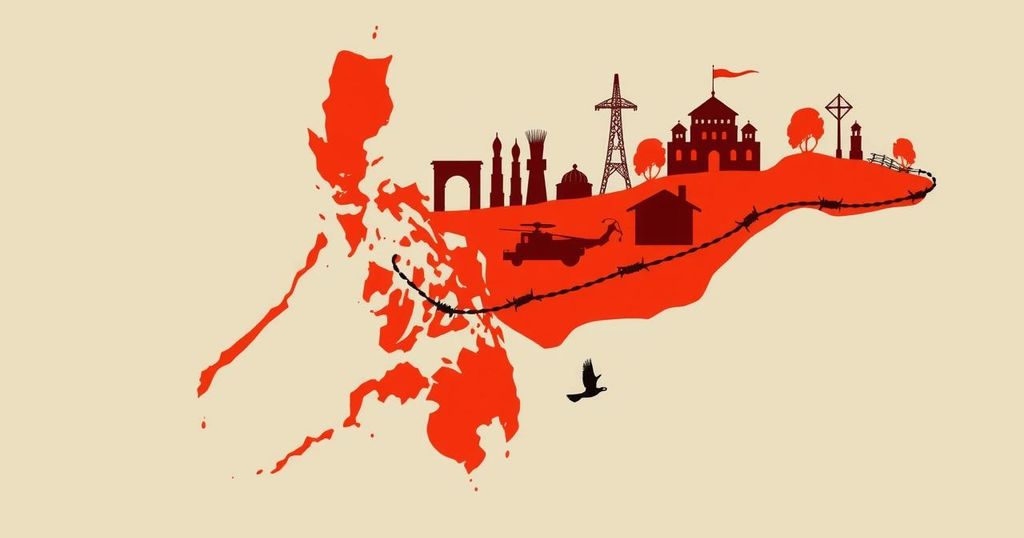Philippine President Ferdinand Marcos Jr. has arrested and deported former President Rodrigo Duterte to face ICC charges. This action follows the impeachment of Duterte’s daughter, Vice President Sara Duterte. Marcos’s efforts to diminish his political rivals may prove risky with upcoming elections looming.
Three years prior, the most influential political families in the Philippines united to achieve a landmark electoral victory. Currently, they find themselves embroiled in a conflict that jeopardizes the stability of one of Asia’s economic powerhouses.
In a significant turn of events, the administration of Philippine President Ferdinand Marcos Jr. has arrested and deported former President Rodrigo Duterte to face charges at the International Criminal Court in The Hague. This action occurred just over a month following the impeachment of Vice President Sara Duterte, daughter of Rodrigo, by Marcos’ allies, with a Senate trial set to commence in July to assess her potential removal from office.
Marcos’s strategic attempt to marginalize his prominent political adversaries is a high-risk maneuver that could have negative repercussions, particularly with upcoming legislative elections scheduled for May. These elections will significantly influence Marcos’s ability to achieve his agenda during the remaining years of his presidency. Notably, the Duterte family retains considerable political influence, with Sara being a leading contender in polls for the 2028 presidential election.
The recent arrest of Rodrigo Duterte by President Ferdinand Marcos Jr.’s administration marks a pivotal moment in Philippine politics, with potential implications for governance and electoral outcomes. As tensions rise between these powerful political factions, the upcoming legislative elections will be crucial in determining the future political landscape, particularly for Vice President Sara Duterte, who remains a formidable candidate for the next presidential election.
Original Source: www.japantimes.co.jp






